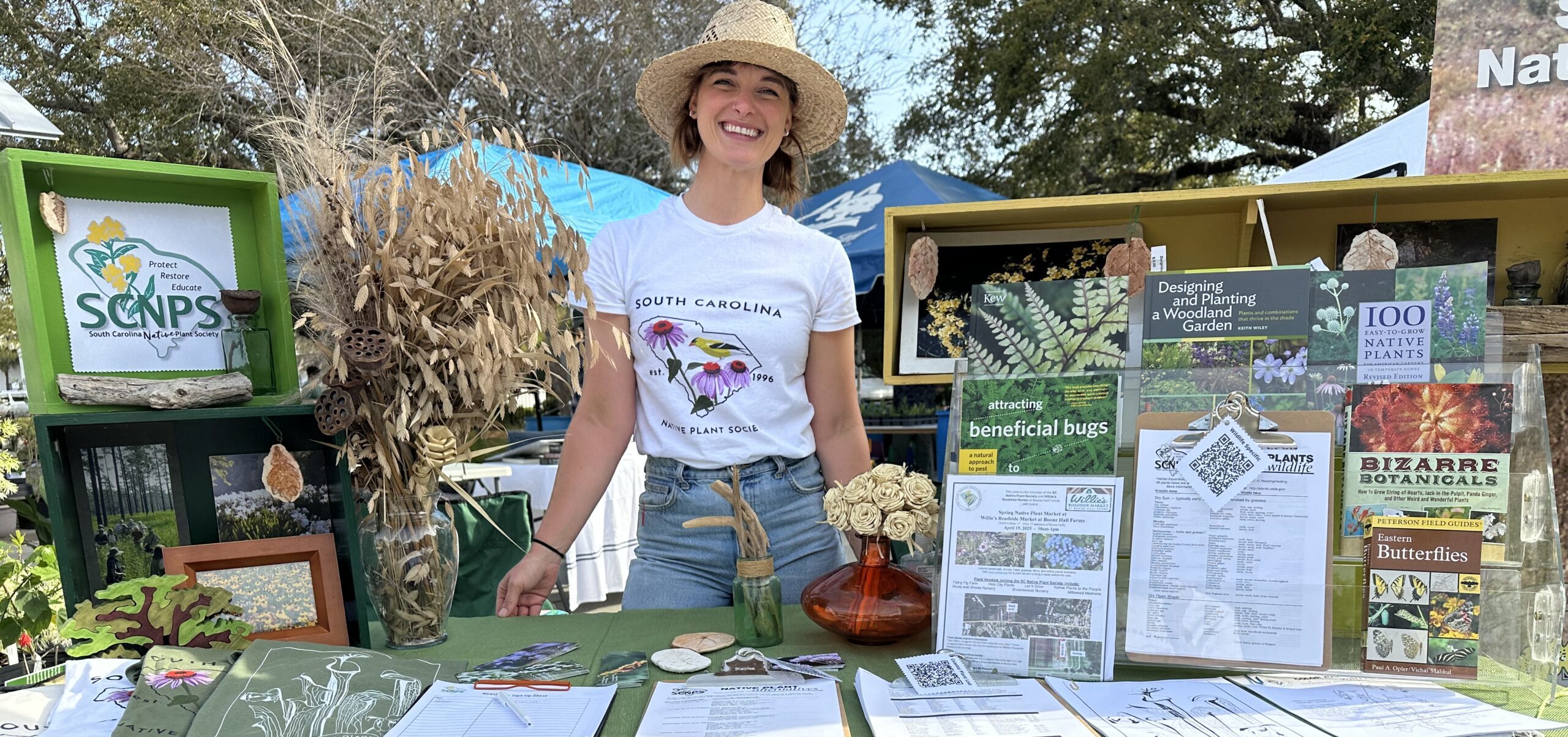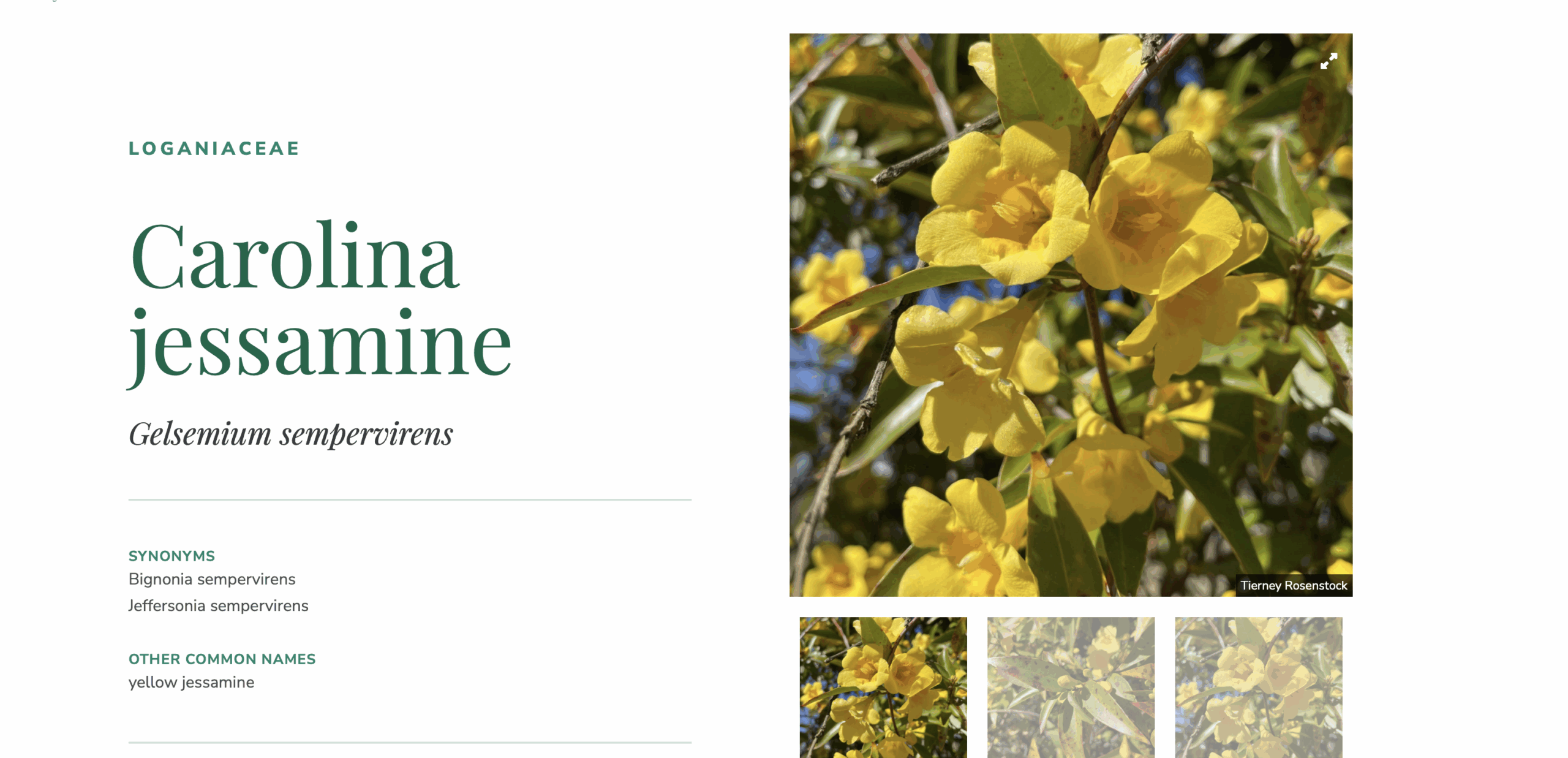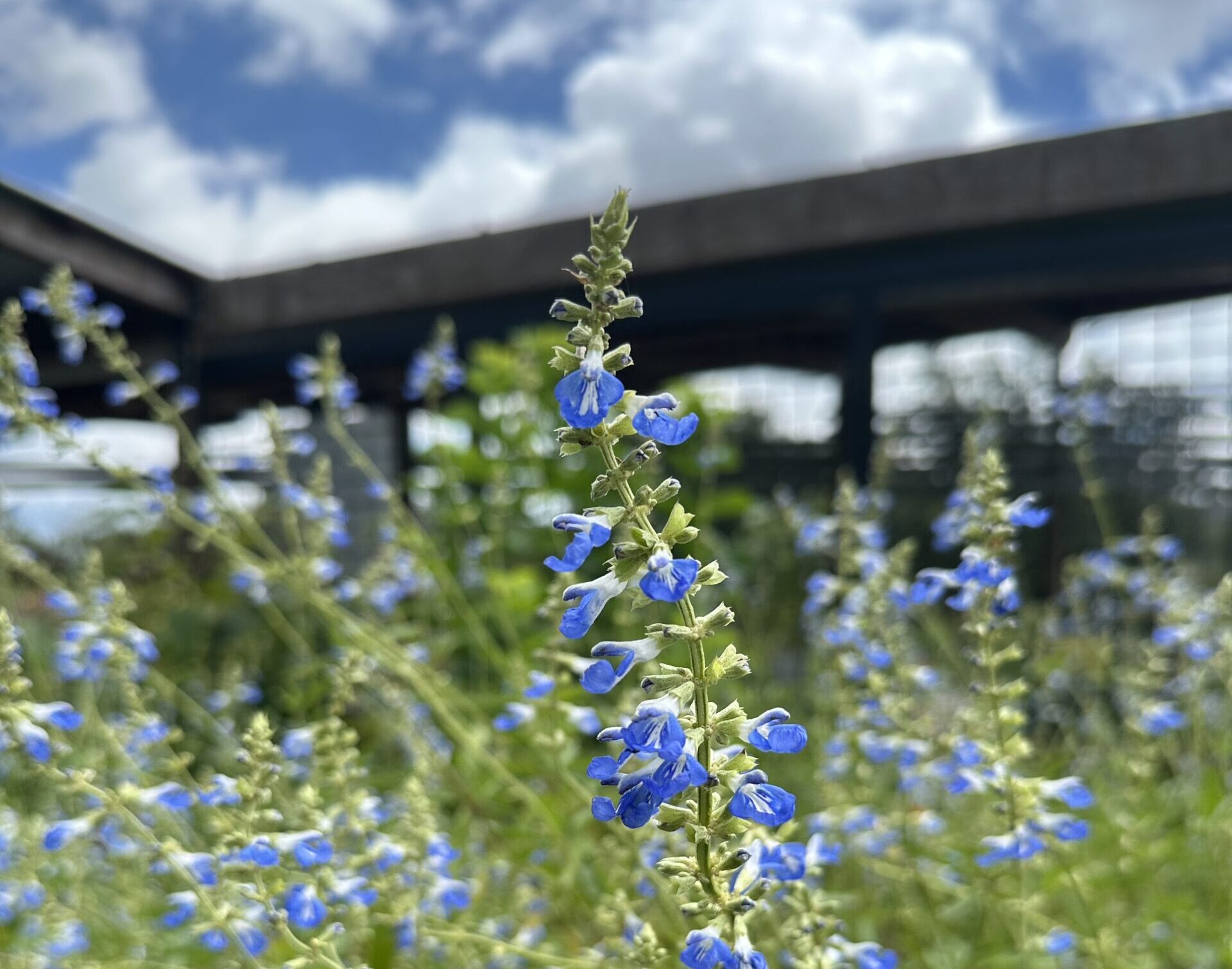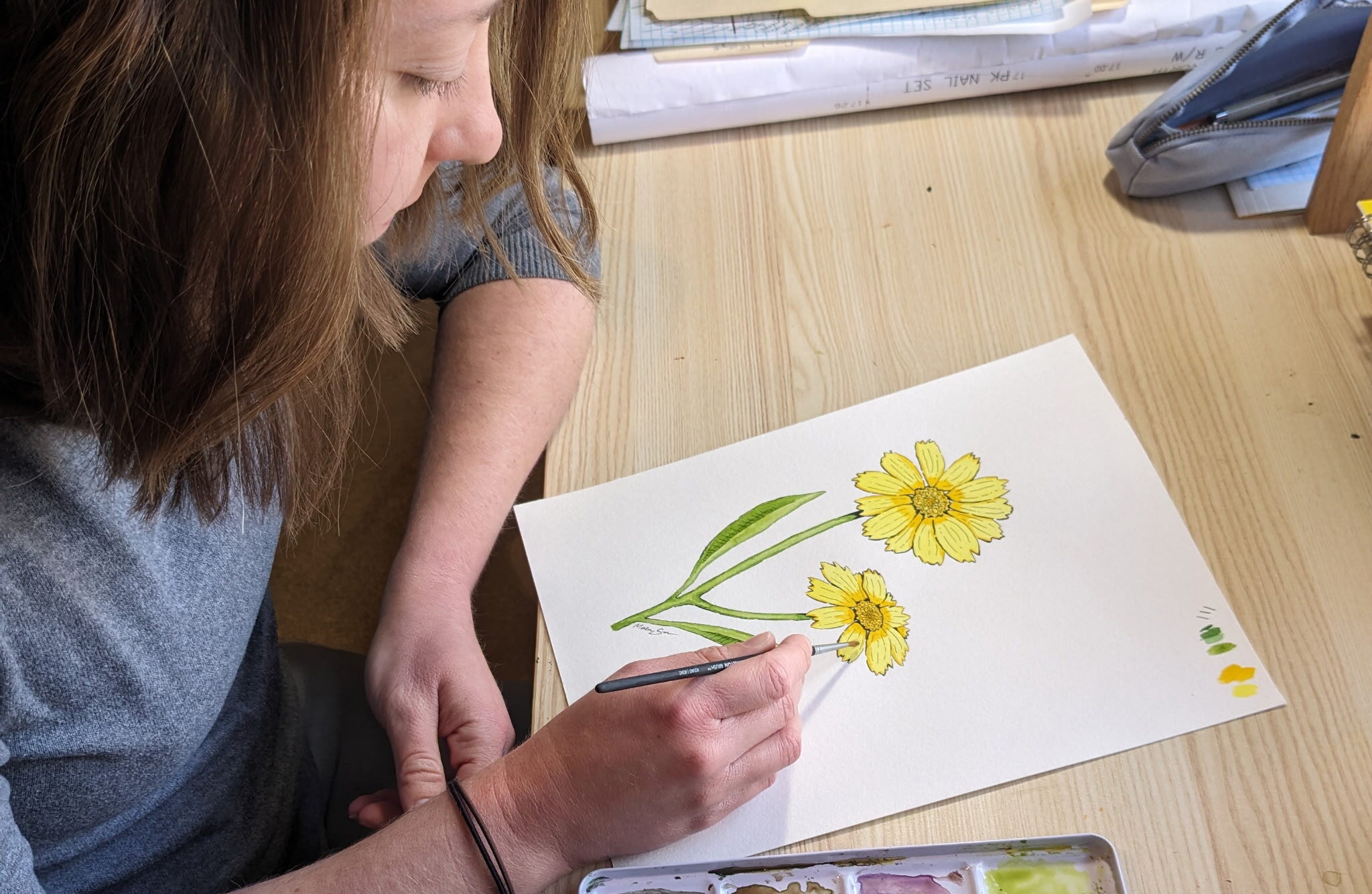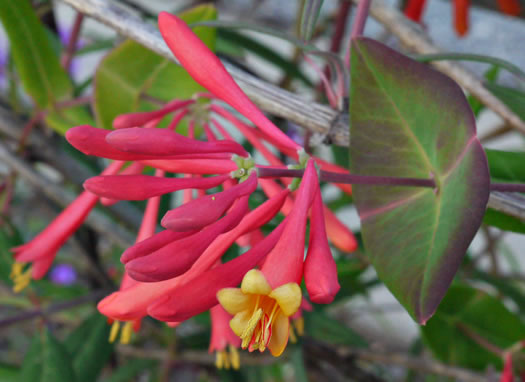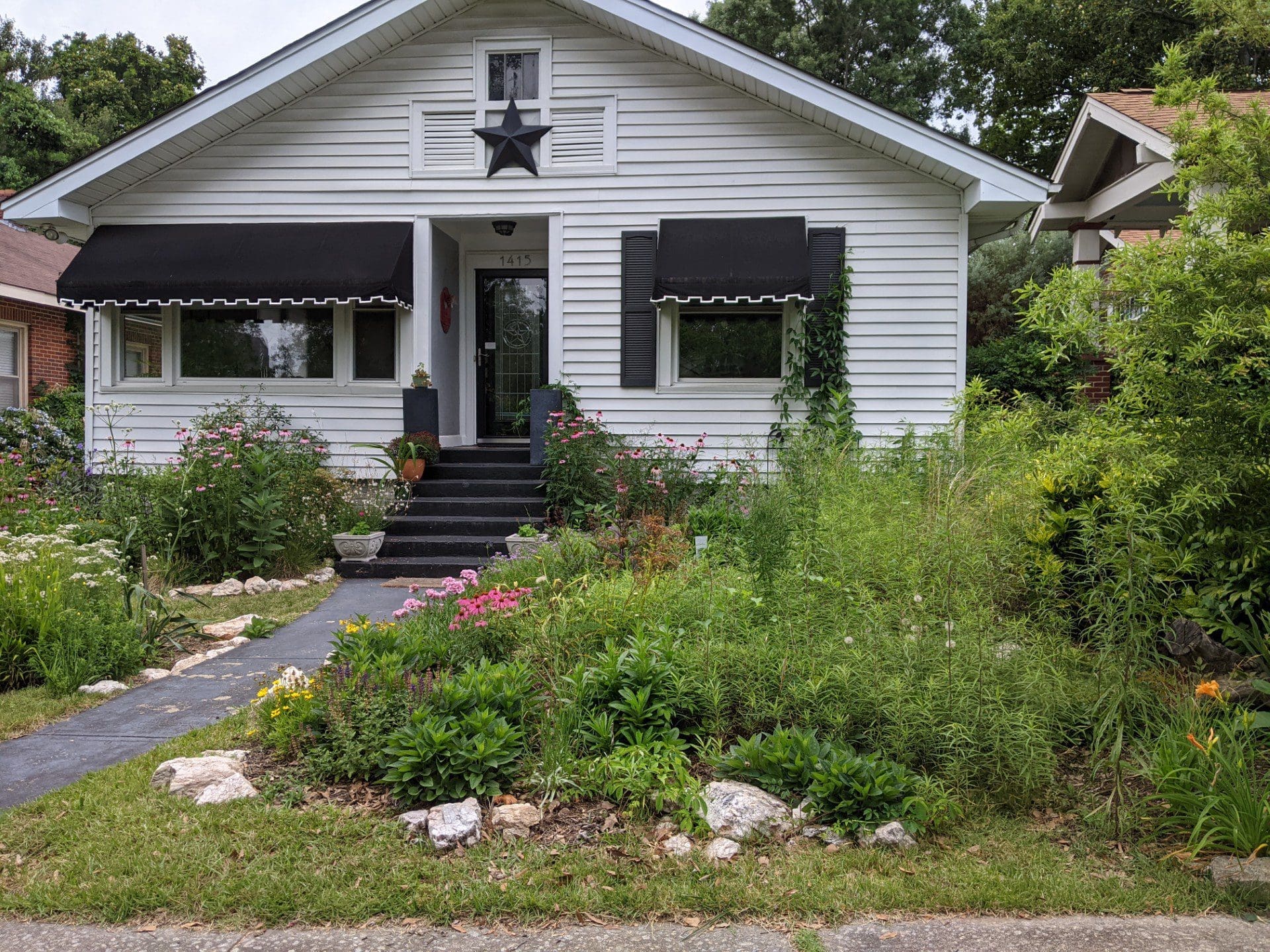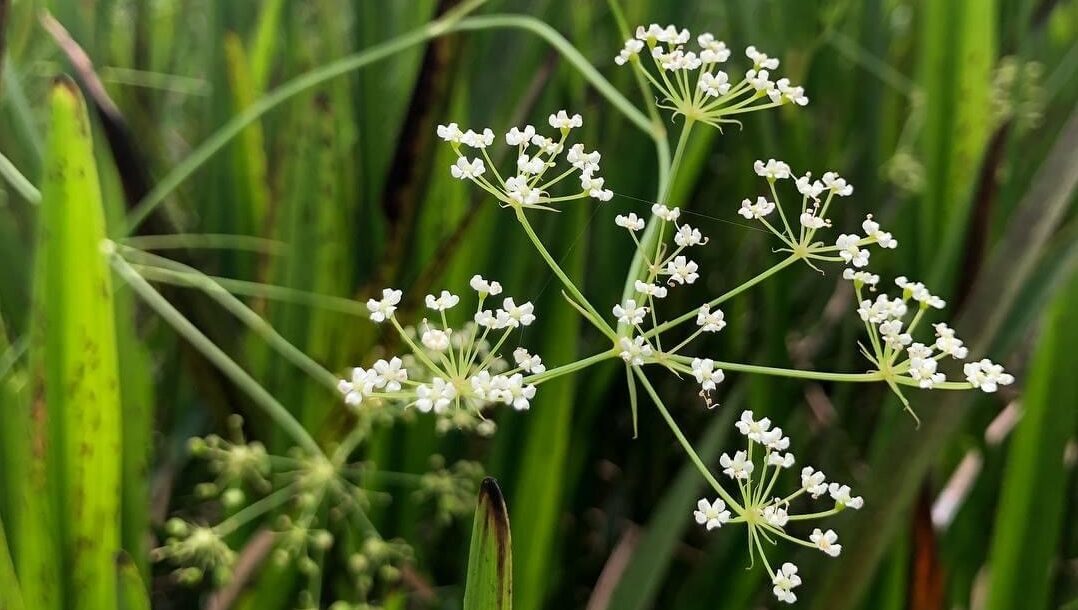How You Can Help
Protect
- Advocate for native and pollinator plantings in public spaces such as parks, near public buildings, and even in roadway medians.
- Support local preservation efforts and organizations such as land trusts that help keep plant and animal communities intact.
- Advocate for protection of sensitive lands and habitats in your community, your state, and the nation.
- Press for legislation and financial support for native plants and eradication of invasives
- Report infestations of invasives on public land to the appropriate authority, such as a park ranger or preserve manager, or document them through the Wild Spotter app.
- Donate to SCNPS Advocacy efforts. Donations can be recurring, one-time, legacy, or endowments.
Restore
- Convert your home landscape to include more native plants and eradicate invasives.
- Participate in plant rescue efforts or invasive species removal projects
- Avoiding buying plants that are rare, threatened, or endangered as it is very difficult to ensure that they have been cultivated and not poached.
- Volunteer at your local SCNPS Native Plant Sale, to help bring more native plants to your community.
- Do not collect plants from the wild, public parks, or preserves unless you are sure they are abundant and you are sure you have permission.
- Do not dispose of exotic potted plants or aquarium waste in your backyard or local waterways, where they can find a way to spread.
- Clean clothes, boots, equipment, and especially boats before traveling away from an infested area to prevent the spread of invasives to new areas.
Educate
- If you see non-native plants being planted or sold in a commercial nursery or big box store, explain the damage invasive plants can do.
- Participate in SCNPS field trips to learn more about the native and invasive plants in your area
- Attend SCNPS chapter meetings and lectures to hear about topics like gardening for wildlife, sustainable landscaping, academic research, and much more.
- Join SCNPS symposiums to meet other members, enjoy top-notch speakers, attend workshops, and explore regional special places.
- Share what you’ve learned about native plants with your friends and family.
- Take courses and earn your Native Plant Certificate from the South Carolina Botanical Garden and the SCNPS.

